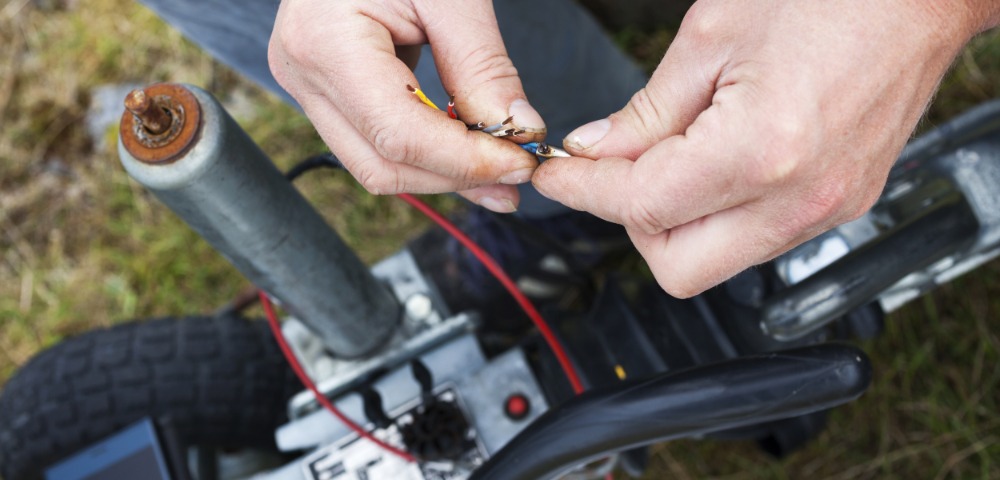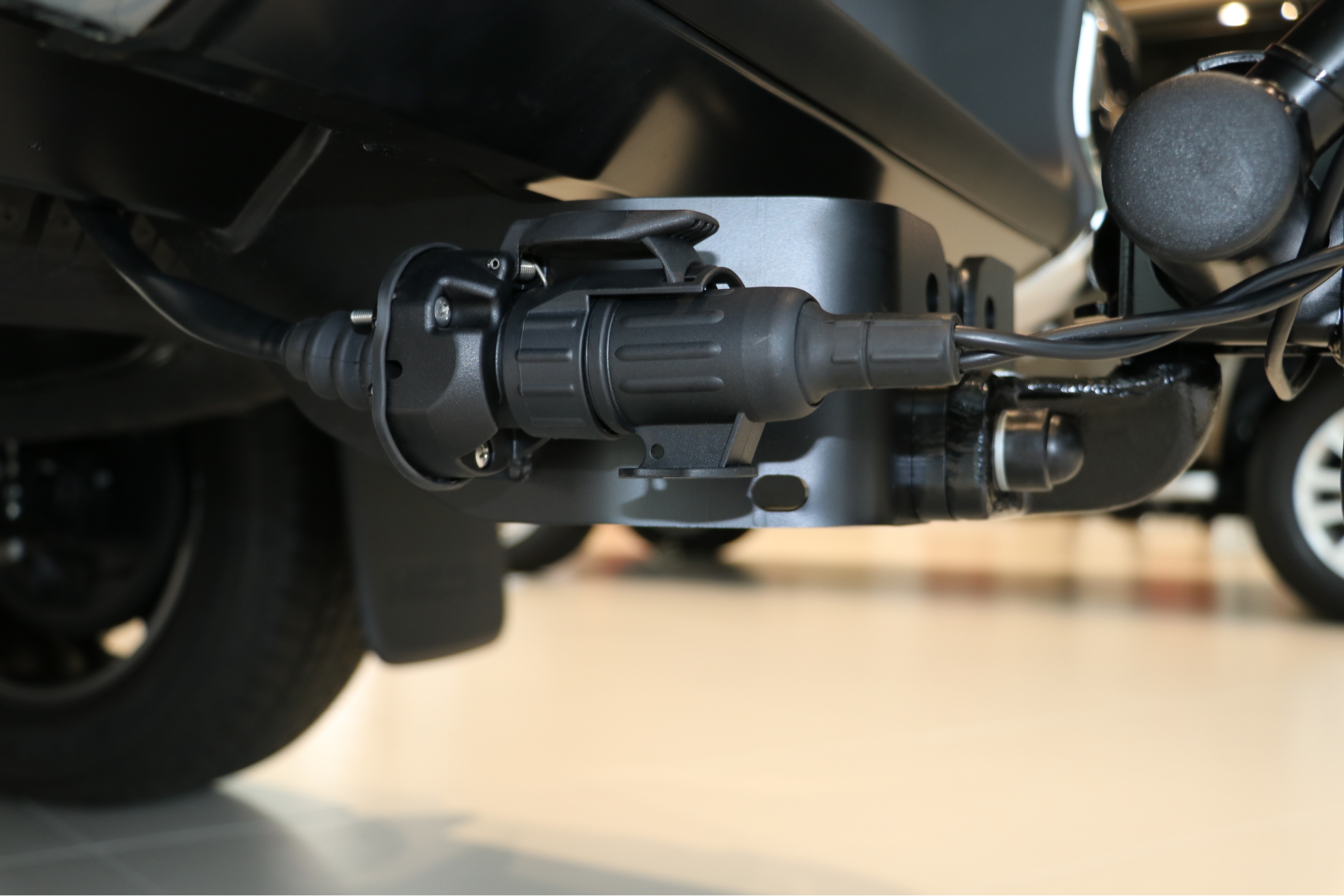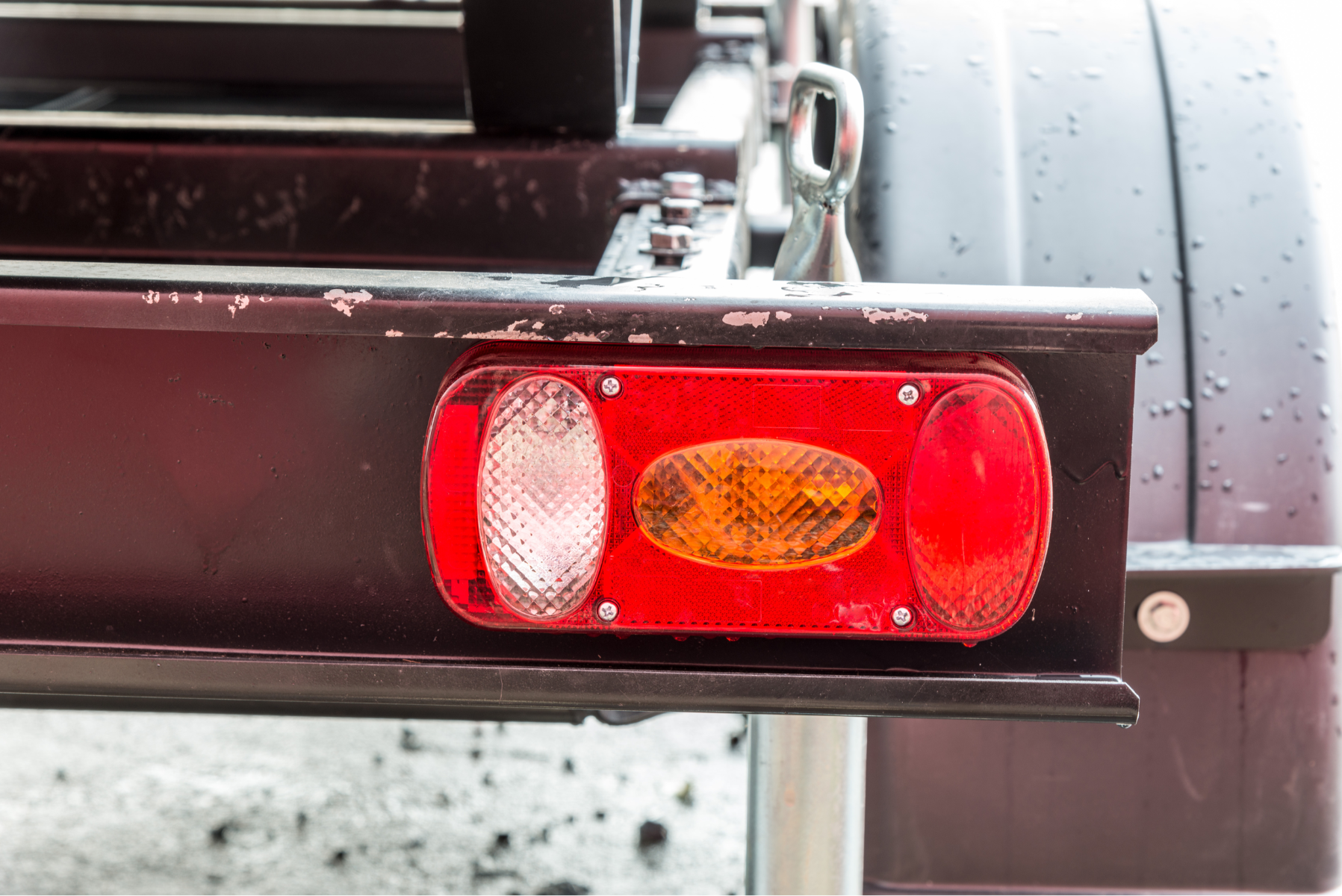You may check out all the available products and buy some in the shop.

Electrics are probably not the first thing that spring to mind when someone mentions trailers or towing, but it is something all trailers have in common. And yes, we mean all, whether your trailer is three foot or eighteen foot, whether you have a flatbed trailer or a box trailer, they all need electrics to be road legal. With October half term right round the corner, it is a great time to make sure your trailer electrics are in order and ready for the winter months.
As we all know, water and electrics certainly aren’t the best of friends, so you will often find as the weather deteriorates electrics can often take the brunt of it when it comes to trailers. But this is nothing that a little once over every season can’t prevent.
Prevention is Better Than Cure
As with most things it is always best to try and prevent issues from occurring than it is to fix them once they have happened. Trailer electrics are no exception. The severity of a problem with your trailer electrics is mainly dependant on how and where you’re your trailer electrics fail. For example, you may only experience a single bulb blowing in the daytime, this would result in minimal interference to your journey and the bulb can simply be replaced. However, if your trailer electrics were to fail in somewhere more critical, such as the plug, you would experience a total loss of power to your trailer. Couple this with towing at night, and you have a recipe for disaster.
Checking your electrics over doesn’t have to be a big, time consuming job. Of course, we cannot tell when bulbs may fail but we can ensure larger, more vital components of your trailer electrics are always in top condition. This not only gives you peace of mind while you are towing your trailer, but avoids situations which could put you and your vehicle at risk.

What Am I Looking For?
Trailers are obviously very versatile, coming in loads of shapes, styles and configurations. You will find some trailers are full of electrics, whereas others may be as simple as just a lighting board. But the same principles remain for all electrics. Connections to the towing vehicle will be through either a 13-pin or 7-pin plug, you may have items such as winches, or hydraulic ramps; all powered by the electrics of the towing vehicle. All trailers are required to have lights fitted and fully functional. These lights are exactly the same as vehicle lights, they can either be fitted in the form of a light board which is usually the case for smaller trailers, or boat trailers, or the trailer will have light clusters which cannot be removed as easily as lighting boards.
When checking over your trailer electrics it is best to do so methodically, we find the best way of doing this is to start at your trailer-vehicle connection, and work towards the back of the trailer, finishing at the lights. The initial checks are purely visual, we are looking for any signs of wear to the electrical equipment and wiring. Start by inspecting the plug connection, make sure all pins are in good condition; this is very important in boat trailers as their exposure to salt water environments can lead to corrosion, it’s a good idea to give the plug connections a spray with WD-40 after they have been used to provide a protective coating. After you are satisfied with the connection quality, begin to trace the wiring through the trailer paying attention to areas where there may be high movement. Work your way to the trailer lights, here you can check the lights for signs of water ingress. If any water is found within the trailer lights this should be removed as it can cause bulb failure. You way also find a build up of dirt around the trailer lights and number plate, this should be cleaned to ensure they are as visible as possible.

Once you are satisfied with the quality of the wiring and lights of the trailer, connect the towing vehicle up to provide power to your trailer. We are now going to check the electrics function correctly, starting with the lights. This is easiest with two people as one can check the equipment while the other operates the vehicle, however if you don’t have anyone at hand don’t worry! If you back the trailer towards a shiny surface, such as a glass window you can usually see the reflection of things such as brake lights from the towing vehicle. When you are happy all the light are working correctly you can move on to other electrical equipment, even if you barely use it checking all functions is a great idea every now and then! If you have a winch you should fully extend the wire and give this a check over while you’re doing it.
Checking the electrics of your trailer over is a preventative method, it is good to know the equipment installed on your trailer functions correctly and safely so you know it is there if you need it.
Powering Your Trailer
Now all these trailer electrics aren’t much use if you can’t power the trailer. Your trailer electrics will solely depend on the power provided by the towing vehicle. This means it is important to make sure your towing vehicle is capable of providing enough energy to meet both its own, and the trailers demands. The more electrical accessories on the trailer, the more electrical demand there will be on the towing vehicle. Trailer lights generally have a very small electrical demand, however larger items such as winches or hydraulic accessories can draw far more power. We would recommend you check over your vehicle electrics, ensuring the battery is fully charged before towing. A discharged battery is a sign of a dysfunctional alternator, this issue will be worsened if a trailer is connected so should be resolved before doing so.











